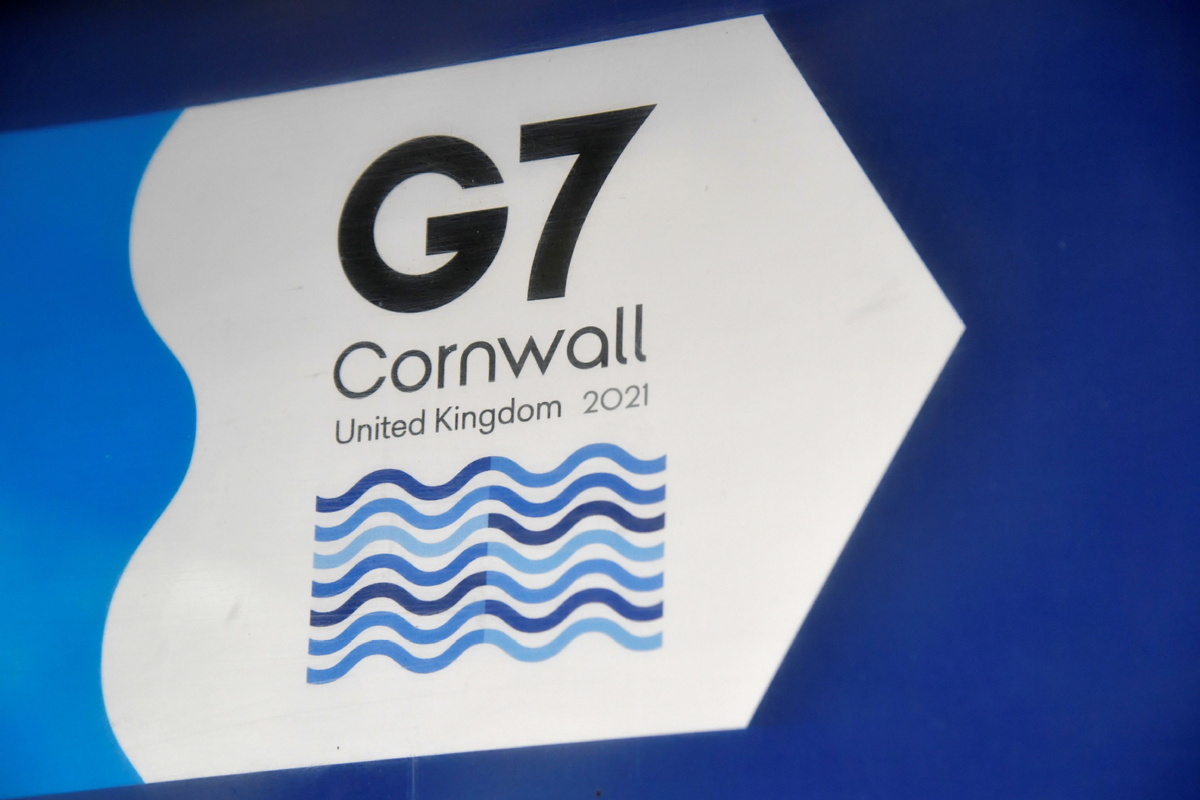
It is a reasonable bet that most people in the United Kingdom were more fixated on the belated arrival of fine spring weather and the launch of the UEFA European Football Championship than on the summit of powerful world leaders that the country just hosted.
The three-day meeting of the G7, which groups the wealthiest economies, wound up on June 13 at the English resort of Carbis Bay in Cornwall, having barely entered the public's consciousness.
Such occasions tend to be important to political leaders as much for their symbolism as for their substance, reflected in this case in a 14,000-word communique that few will have read.
Perhaps the key symbolism of the Carbis Bay summit was that it was the first time major world leaders had gathered face-to-face in the 18 months of the COVID-19 pandemic. There was a tentative mood of "back to normal".
The leaders of Canada, France, Germany, Italy, Japan, the UK and the United States attended, alongside participating guests Australia, India, South Korea and South Africa.
It was an opportunity for US President Joe Biden to tell his closest allies and partners that "America is back" after the uncertainty and international tensions of the Donald Trump era.
For host Boris Johnson, the UK's prime minister, it was an opportunity to proclaim a golden future for "Global Britain", although this was somewhat marred by continuing post-Brexit wrangling with the UK's erstwhile European Union partners.
The symbolism of European leaders confronting the UK over its adherence to new rules on trade with the province of Northern Ireland prompted some negative headlines for the summit host.
In compensation, the announcement of a new US-UK Atlantic Charter to promote democracy, free trade and increased opportunity for all had the hallmark of a symbolic gift from Biden to his junior transatlantic partner.
China was among the critics suggesting that having such a narrow group of rich countries attempting to set the global agenda was an anachronism in the modern world.
A statement from the Chinese embassy in London asserted: "The days when global decisions were dictated by a small group of countries are long gone. We always believe that countries, big or small, strong or weak, poor or rich, are equals, and that world affairs should be handled through consultation by all countries."
China may not have participated in the meeting at Carbis Bay, but it was an invisible presence in the debates of the G7 leaders, who clearly differed on how to deal with its economic and technological rise.
While Biden continued to display a hawkish stance toward Beijing, reflected in critical remarks in the final communique, other leaders indicated a more cooperative attitude based on 21st century realities.
The US president, welcoming a G7 initiative called Build Back Better World, or B3W, described it as a competitor of the China-proposed Belt and Road Initiative. He claimed that B3W funds were a much more "equitable way to provide for the needs of developing countries".
The stance of some of his fellow leaders was more nuanced. French President Emmanuel Macron insisted the G7 was "not hostile to China", while Italian Prime Minister Mario Draghi spoke of the need to work with China on global issues such as climate change.
Beyond the symbolism of the event, did the summit produce any tangible benefits? There was a pledge to supply 1 billion doses of COVID-19 vaccines to poorer nations and a promise to fund education for girls. The summit's climate change commitments essentially repeated existing pledges.
The summit outcome was criticized by health, poverty and climate campaigners.
South African President Cyril Ramaphosa, attending as a guest, had urged the G7 to do more to promote the global vaccine drive. Even more withering criticism came from former UK prime minister Gordon Brown, who described the summit as a missed opportunity.
"The gift of 1 billion (COVID-19 vaccine) doses from the richest countries to the poorest is headline-grabbing and welcome," Brown wrote. "But it falls billions of doses short of a solution."
The author is a senior media consultant for China Daily UK.













